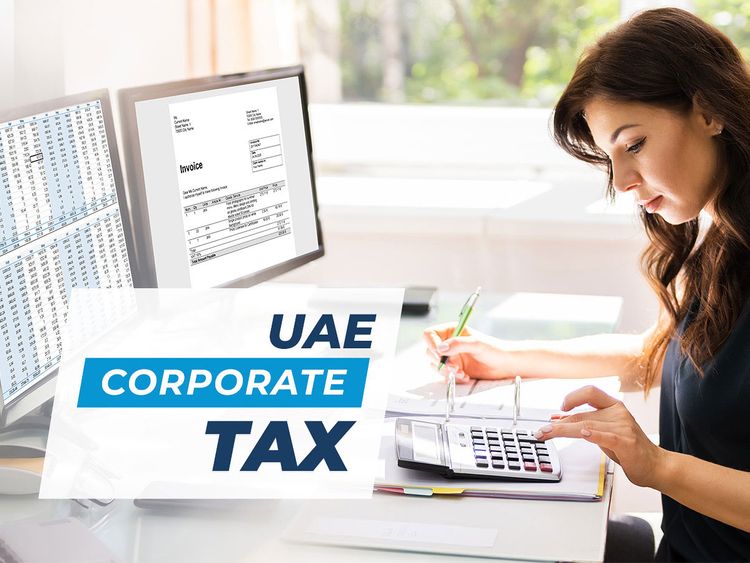Real estate investment income won’t be taxed if it’s not a licensed business activity
Dubai: The UAE Ministry of Finance announced the issuance of a cabinet decision on a non-resident person’s nexus in the UAE for the purpose of corporate tax, on Monday.
According to the decision, foreign companies and other non-resident juridical persons will be subject to corporate tax on income derived from real estate and other immovable property located in the UAE and will be required to register for corporate tax purposes. This applies to both immovable property that is held or used in a business and immovable property that is held for investment purposes in the UAE.
Non-resident juridical persons with immovable property will be subject to corporate tax on a net-income basis. This allows for relevant expenditure that meets the conditions set out in the corporate tax law to be deducted when calculating taxable income.
Younis Haji Al Khoori, Undersecretary of the Ministry of Finance, said: “The corporate tax treatment of income derived from UAE real estate and other immovable property by foreign juridical persons is in line with international best practice which stipulates that income derived from immovable property is taxable in the country in which such property is located.”
Real estate investment income earned from UAE immovable property owned by foreign or UAE resident individuals, either directly or through a trust, foundation or other vehicle that is treated as fiscally transparent for UAE corporate tax purposes, would generally not be subject to corporate tax provided it is not a licensed business activity. Further, real estate investment trusts and other qualifying investment funds may benefit from an exemption from corporate tax on income derived from the investment in UAE immovable property, provided that the relevant conditions are met.
The latest decision comes within the first week of the new tax law being implemented.
Recent announcements
Corporate tax for free zones
On June 1, the finance ministry announced two decisions on corporate tax for juridical persons operating out of free zones in the UAE — on determining qualifying income, and on qualifying and excluded activities.
According to Al Khoori, the Free Zone Corporate Tax regime is available to ‘Free Zone Persons’, which refers to a juridical person that is incorporated or otherwise formed or registered in a free zone.
The Free Zone Corporate Tax regime is applicable only within the prescribed areas of the free zones. Businesses can contact their free zone authority to confirm whether that free zone is eligible for the 0 per cent rate.
The Free Zone CT regime is intended to apply only to income derived from activities that are performed exclusively in or from within a free zone. This is reflected in the definition of ‘qualifying income’, which includes income derived from transactions with other free zone persons as well as domestic and foreign sourced income derived from conducting any of the ‘qualifying activities’.
The ‘qualifying activities’ include manufacturing of goods or materials; processing of goods or materials; holding of shares and other securities; ownership, management, and operation of ships; reinsurance services; fund management services; and wealth and investment management services.
They also include headquarter services to related parties; treasury and financing services to related parties; financing and leasing of aircraft, including engines and rotable components; logistics services; distribution in or from a designated zone that meets the relevant conditions, among others.
Income from certain specific ‘excluded activities’ will not be treated as ‘qualifying income’ regardless of whether the income is derived from a free zone person or as part of undertaking a ‘qualifying activity’. Subject to certain exceptions, this includes income derived from transactions, certain regulated financial services activities, intangible assets, and immovable property, other than transactions with free zone persons in relation to commercial immovable property located in a free zone.
Tax on intra-group transfers
On May 31, the ministry issued decisions on transfers within a qualifying group, on business restructuring relief, and on the general rules for determining taxable income.
The decision on transfers states that an entity must make an election in their tax return to apply for the relief and must comply with the associated record-keeping requirements. The election to apply the relief for transfers within a qualifying group is irrevocable and will apply to all future tax periods.
The decision also clarifies the implications of simultaneous asset or liability exchanges and the tax implications if the relief needs to be revoked because the relevant assets and liabilities or the relevant group companies leave the qualifying group within two years of the original transfer.
The decision on business restructuring relief clarifies the conditions under which business mergers and other restructuring transactions can be undertaken without triggering a corporate tax liability. This relief is available when a business or an independent part of a business is transferred or merged into another legal entity in exchange for shares or other ownership interests. Where the transferor makes an election to apply for the relief, no gain or loss needs to be included in the calculation of their taxable income.
The relief can also apply if the business is exchanged for shares and a limited amount of other consideration, such as cash, or when shares are received or issued by someone other than the transferor or the transferee as long as they are received or issued by an entity which owns the transferor or transferee, respectively.
The decisions also streamline the process of calculating taxable income for UAE businesses, setting out adjustments needed for the taxable income calculation, including recognising realised and unrealised gains or losses reported in financial statements.
Tax groups
On May 30, the ministry announced decisions on tax grouping, general interest deduction limitation rule, and unincorporated partnerships.
The decision on tax grouping clarifies the conditions under which UAE resident entities that are 95 per cent or more commonly owned can form or join a tax group and be treated as a single entity for corporate tax purposes. The parent company must own at least 95 per cent of the voting rights and shares in each UAE entity. Also, all members of the group must be considered UAE residents for corporate tax purposes.
Forming a group simplifies the calculation and reporting of taxable income by allowing the parent company to file a single tax return based on the aggregated taxable profit or loss of the group.
The general interest deduction limitation rule sets out the maximum cap of interest that can be deducted by businesses that are not banks, insurance providers or natural persons (individuals) undertaking a business or business activity in the UAE.
The net interest expenditure that can be deducted is capped at the higher of 30 per cent of adjusted earnings before interest, tax, depreciation, and amortisation (EBITDA); or a safe harbour amount of Dh12 million. Tax groups with members who are banks and/or insurance providers must exclude these members’ income and expenditure when determining the 30 per cent EBITDA threshold.
Long-term infrastructure projects meeting relevant conditions will not face restrictions on interest expenditure deductibility. Furthermore, interest incurred on debt instruments entered into before the law was published to the general public on December 9, 2022 will not be subject to the limitation rule.
Transitional rules
On May 26, the ministry issued a decision on transitional rules for corporate tax, providing guidelines for adjusting a taxable person’s opening balance sheet under the tax law.
The decision applies to certain assets and liabilities, such as immovable property, intangible assets, financial assets, and financial liabilities, held by businesses before the corporate tax law comes into effect.
Businesses can adjust their tax treatment of such assets and liabilities based on specific rules and must decide how to do that when they submit their first tax return. Their choice would be permanent except in special circumstances. The decision also considers the ownership history of assets and liabilities, including those owned by the company or other members of the same business group.
Companies with immovable property recorded on a historical cost basis have an option to select the basis of the relief, using either a time apportionment method or valuation method.
For example, consider a company that owns a building or land before the effective date of the corporate tax law. Upon selling the property after the enactment of the law, the company can choose one of two methods for adjusting their taxable income: they can either exclude a portion of the gain based on the property’s holding period, or they can use a fixed formula based on the property’s value (as determined by the relevant government entities in charge of valuation of land and real-estate property in the UAE) at the start of the first tax period.
This move only taxes gains that are attributed to periods after the corporate tax law is effective.
Another possible scenario for financial assets and liabilities would be a local business that holds shares in another company recorded on a historical cost basis before the enactment of the tax law.
When this local business sells these shares after the law comes into effect, it can adjust its taxable income by excluding a portion of the gain based on the shares’ value at the start of the first tax period.


